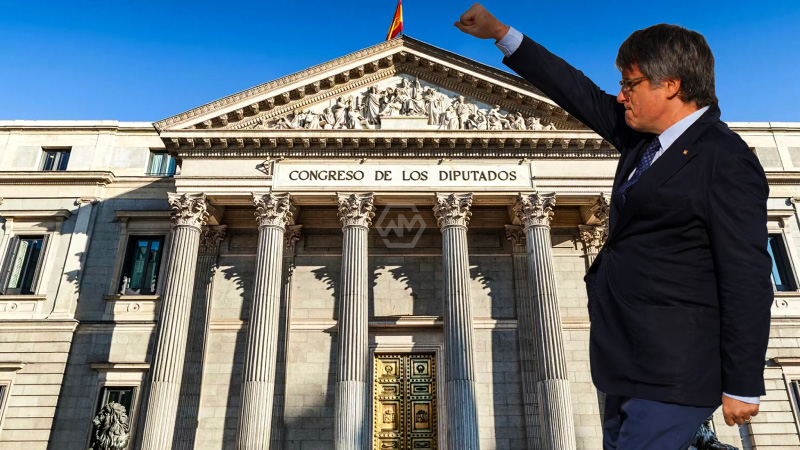- Puigdemont’s Return: The former Catalan leader returns to Spain despite an arrest warrant for embezzlement related to the 2017 independence referendum.
- Public Appearance: He spoke to thousands of supporters in Barcelona, accusing Spanish authorities of persecuting Catalan independence efforts.
- Political Fallout: His arrival could disrupt ongoing political negotiations and influence the amnesty bill’s impact on Catalan separatists.
Carles Puigdemont’s dramatic return to Spain marks a significant escalation in the ongoing Catalan independence saga.
After spending nearly seven years in exile in Belgium, Puigdemont arrived in Barcelona to a warm reception from supporters, underscoring his continued influence within the separatist movement.
Puigdemont’s Bold Homecoming: Catalan Independence Leader Challenges Spanish Authorities
Puigdemont’s return has significant implications for the political landscape in Catalonia. It coincides with the formation of a new regional government, which might now face additional challenges due to the heightened tensions. His presence complicates the delicate negotiations required to finalize the new leadership.
The amnesty bill, which could potentially clear Puigdemont of charges related to the 2017 referendum, remains a contentious issue. The Supreme Court’s challenge to the bill introduces further uncertainty, as it debates whether the proposed pardon applies to charges of embezzlement.
The unfolding situation underscores the persistent divide between Catalonia’s separatist ambitions and Spain’s central government. Puigdemont’s actions and the legal developments surrounding the amnesty bill will likely shape the region’s political dynamics for the foreseeable future.
Carles Puigdemont’s return to Spain is more than a personal statement; it’s a pivotal moment in Catalonia’s struggle for independence. How the Spanish authorities and the legal system respond will be critical in determining the future of Catalan separatism and the stability of regional politics.
“All people have the right to self-determination” as a core part of his message during his return to Spain.



